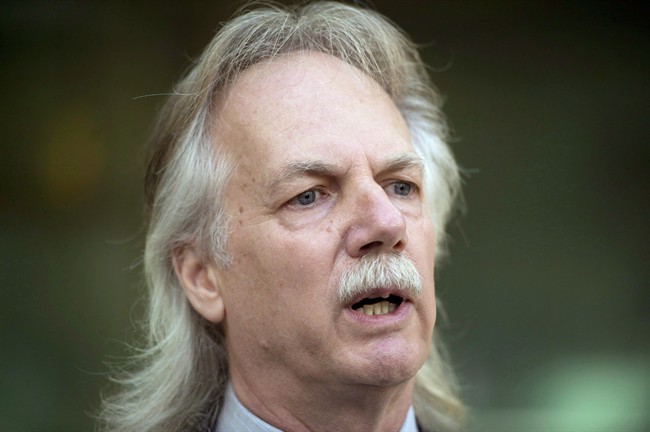With rotating strikes less than 100 hours away, the BC Teachers’ Federation and provincial government continued to battle publicly without coming any closer to an agreement.

Today’s back-and-forth was prompted by a letter from the BC Public School Employers’ Association (BCPSEA) sent to the BCTF last night, in response to its escalation of strike activities to Stage 2, which involves rotating strikes.
The letter states that effective May 26 and continuing until further notice, BCTF members will be locked out from doing any work during recess or lunch, or doing administrative tasks. It says a secondary school lockout will be in effect for June 25 and 26 with a general lockout happening on June 27.
READ the BC Public School Employers’ Association’s letter in full
In addition to the partial lockout, BCPSEA says salaries will be reduced by five per cent for all employees in the BCTF bargaining unit who are scheduled to work, beginning May 26. And if the union moves to Stage 2 activities, the salary reduction will be 10 per cent.
Iker says partial lockout will have huge effects
Invoking Christy Clark’s name a dozen times in a six-minute address, BCTF president Jim Iker said they have referred the matter to the Labour Relations Board.
“It is more of the same behavior from the Premier and the government that the B.C. Supreme Court ruled had bargained in bad faith with us,” he said.
WATCH: BCTF President Jim Iker fired back at Premier Christy Clark and the Liberal government over the imposed lockouts
Iker said a series of partial lockouts imposed by the government will have wide-ranging impact on students, parents and teachers.

Get breaking National news
“It will shut down schools completely, and put the marking of province-wide exams for senior grades, as well as report cards, at risk.”
Iker said on June 24, all grade 10 English students and Social Studies 11 students are writing their provincial exams.
“Christy Clark’s lockout starts the next day, and that will prevent thousands of students’ exams from being marked,” he said.
Iker also claimed that extracurricular activities, field trips and sport tournaments will be at risk because teachers will be locked out of their work sites.
Finally, he said teachers will now be prohibited from interacting with students during lunch hour, stripping them of valuable one-on-one time with their teachers.
“Christy Clark’s lockout means that teachers will be insubordinate if they helped a struggling child or a child with special needs during lunch hour. Shameful,” he said.
Government says extracurriculars can continue
But according to BCPSEA negotiator Peter Cameron, teachers will be still be free to take part in extracurriculars, including graduation events, on or off school property, though they are free to opt out.
WATCH: Cameron response to Iker’s press conference
The BCPSEA says that, outside of the days they have committed to striking, teachers can take part in all activities, including teachers who are on extended field trips.
Cameron also says that teachers will still be able to mark exams by the end of the year, and that the terms of the lockout will be “tweaked” when necessary to ensure this.
The BCPSEA has also released a “Questions and Answers” document on the lockout, which you can read here.
MORE: List of school closures next week by district
Cameron continued to underline the government’s position that the BCTF’s wage demands of 15.9 per cent are unreasonable.
“That number is far greater than the current settlements everyone has settled with,” he said, claiming their wage and benefit demands would amount to more than $600 million dollars.
“We’re not asking us to get in what we say is the settlement zone, we’re asking you to get into what anyone would say is a settlement zone.”
With both sides far apart in their positions, and refusing to budge publicly, both have stated a mediator would not be useful at this stage. But Cameron says that could change in the future.
“I think at some point, it’s very likely there will be a mediator, and a mediator will play a useful role.”



Comments